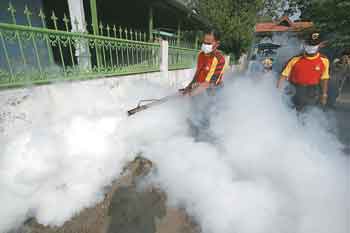- Home
- Medical news & Guidelines
- Anesthesiology
- Cardiology and CTVS
- Critical Care
- Dentistry
- Dermatology
- Diabetes and Endocrinology
- ENT
- Gastroenterology
- Medicine
- Nephrology
- Neurology
- Obstretics-Gynaecology
- Oncology
- Ophthalmology
- Orthopaedics
- Pediatrics-Neonatology
- Psychiatry
- Pulmonology
- Radiology
- Surgery
- Urology
- Laboratory Medicine
- Diet
- Nursing
- Paramedical
- Physiotherapy
- Health news
- Fact Check
- Bone Health Fact Check
- Brain Health Fact Check
- Cancer Related Fact Check
- Child Care Fact Check
- Dental and oral health fact check
- Diabetes and metabolic health fact check
- Diet and Nutrition Fact Check
- Eye and ENT Care Fact Check
- Fitness fact check
- Gut health fact check
- Heart health fact check
- Kidney health fact check
- Medical education fact check
- Men's health fact check
- Respiratory fact check
- Skin and hair care fact check
- Vaccine and Immunization fact check
- Women's health fact check
- AYUSH
- State News
- Andaman and Nicobar Islands
- Andhra Pradesh
- Arunachal Pradesh
- Assam
- Bihar
- Chandigarh
- Chattisgarh
- Dadra and Nagar Haveli
- Daman and Diu
- Delhi
- Goa
- Gujarat
- Haryana
- Himachal Pradesh
- Jammu & Kashmir
- Jharkhand
- Karnataka
- Kerala
- Ladakh
- Lakshadweep
- Madhya Pradesh
- Maharashtra
- Manipur
- Meghalaya
- Mizoram
- Nagaland
- Odisha
- Puducherry
- Punjab
- Rajasthan
- Sikkim
- Tamil Nadu
- Telangana
- Tripura
- Uttar Pradesh
- Uttrakhand
- West Bengal
- Medical Education
- Industry
Fogging ineffective in dengue control: CSE

New Delhi: With over 12,500 reported cases of dengue in the national capital, the Centre for Science and Environment (CSE) on Tuesday claimed that the fogging drive being carried out was "ineffective" against mosquitoes which are responsible for menace.
The drive however had a harmful health impact, especially on children, elderly and those with respiratory ailments, it said.
After a large number of dengue cases recorded in August, the authorities had stepped up fogging as one of the solutions to prevent vector-borne disease from spreading, the CSE said in a statement.
"We looked into the issue when community members approached us and shared their observations and experiences. We found that fogging is ineffective in containing dengue and has a harmful effect on the health of people," said its deputy director general Chandra Bhushan.
Fogging knocks down adult mosquito only, and not the larvae that are the source of breeding, he said, adding that larvicide measures on the other hand were recognised as an important intervention to prevent large-scale spread of dengue.
"Unless repeated frequently, fogging cannot control the next batch of adults out of the larvae. This is why, source control through larvicide measures is considered effective," the CSE said.
It estimated that the municipal corporations of south and east Delhi had already spent about Rs.70 lakh on diesel for fogging till October 10.
The CSE said medical experts suggest that direct inhalation of diesel fumes, combined with insecticides, can exacerbate asthma or bronchitis among those with respiratory ailments, and said that instead of fogging, the focus should be on long-term preventive measures and creating awareness among people.
Meghna A Singhania is the founder and Editor-in-Chief at Medical Dialogues. An Economics graduate from Delhi University and a post graduate from London School of Economics and Political Science, her key research interest lies in health economics, and policy making in health and medical sector in the country. She is a member of the Association of Healthcare Journalists. She can be contacted at meghna@medicaldialogues.in. Contact no. 011-43720751
Next Story


